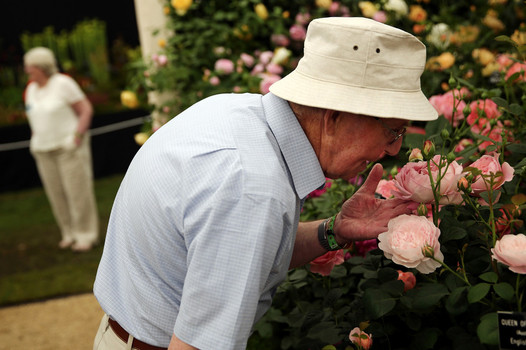Science Daily reported today that the loss of the ability to identify scents is a better predictor of death among older adults than most chronic diseases.
The study was conducted as part of the National Social Life, Health, and Aging Project (NSHAP), which studied social relationships and health in a nationwide sample of men and women aged 57 to 85. The first phase of the study was conducted between 2005 and 2006 and looked at 3,005 participants. Researchers tested participants sense of smell using “Sniffin’Sticks,” which are pen-like devices designed to be loaded with scents. Researchers asked subjects to identify scents one at a time, and were given four answers to choose from. The scents were peppermint, fish, orange, rose, and leather.
Of those tested, 78 percent had a normal sense of smell, 20 percent had impaired sense of smell, and 3.5 percent had significantly impaired sense of smell. Of the last group, 1.1 percent could smell nothing at all. Researchers also took demographic and health data.
Five years later, the survey team determined that 430 of the original 3005 subjects had died. After adjusting for demographic variables, the researchers found that those with the most smell loss were more likely to have died in the intervening five years. Mild smell loss also showed more risk of death. Decreased sense of smell predicted death better than diagnosis of chronic illnesses such as heart disease or cancer. Only severe liver damage came close.
To be clear, loss of the ability to smell by itself is no killer. However, it is possible that the decrease in the ability to smell is a sign that significant damage has occurred. Also, reduced sense of smell could impact an individual’s health. Scent and taste are intimately related, so being unable to smell makes it harder to enjoy food, reducing the desire to eat. Also, loss of ability to smell could make it harder to tell when food has gone bad.
While these factors may play a role in the correlation observed in the study, it remains unknown specifically how loss of the ability to identify smell is linked to mortality.















